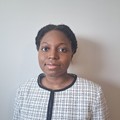Learner Education Women in Mathematics Scholarship
“I would like to be remembered as someone who was not afraid to do what she wanted to do, and as someone who took risks along the way in order to achieve her goals.” Sally Ride
We live in the information era, where technology underpins so much of our daily lives. Technology influences the way we communicate, learn, entertain. And it has an increasing influence on key issues like the economy, foreign policy, privacy, healthcare, and more.
With this drastic boom in tech, innovators in math are needed now more than ever to solve complex problems surrounding tech in order to continue driving the information era forward toward the goals we’ve set for ourselves.
We can all benefit from having more women entering the math field. Gender diversity introduces new perspectives, enabling us to better solve the complex problems of the future and provide those who have often been overlooked the opportunity to succeed in these fields.
This scholarship exists as part of our initiative to provide more opportunities for women in STEM. To contribute to a better future for women in math, the Learner Women in Mathematics Scholarship will be awarded to one woman who is pursuing a career in a math-related field and is extremely ambitious about the feats she will accomplish in her career.
To be eligible for this scholarship, you must be a current high school senior who plans to study mathematics or related fields or an undergraduate currently studying in these fields. To apply, please write about what draws you to math and how certain principles in math have shaped your understanding of the world around you.
What draws you to math, and how have the principles of mathematics shaped your understanding of the world?
Winners and Finalists
August 2023
August 2022
August 2021






Winning Application


Explore All Kinds of Scholarships for All Kinds of Students
FAQ
The application deadline is Aug 1, 2023. Winners will be announced on Aug 26, 2023.
Your privacy is a top priority on the Bold.org platform, and you can find our privacy policy in full here. You may opt out of communications from Bold.org at any time, and unless we’ve first notified you and gotten your consent, you’ll never receive communication from any third parties related to personal information you give us.
Award amounts per winner are designated by the donor. Check the award amount for a detailed breakdown.
The winner will be publicly announced on Aug 26, 2023. Prior to the announcement date, we may contact finalists with additional questions about their application. We will work with donors to review all applications according to the scholarship criteria. Winners will be chosen based on the merit of their application.
Award checks will be sent to the financial aid office of the winner's academic institution or future academic institution in their name to be applied to their tuition, and in the name of their institution (depending on the school's requirements). If the award is for a qualified educational non-tuition expense, we will work with the winner directly to distribute the award and make sure it goes towards qualified expenses.
Before we award the scholarship, the winner will be required to confirm their academic enrollment status. Depending on the circumstances, verification of Student ID and/or their most recent transcript will be required.
If you have any questions about this scholarship or the Bold.org platform, just email contact@bold.org and we’ll get back to you as quickly as we can.
Yes. The terms and conditions for this scholarship can be found here.



